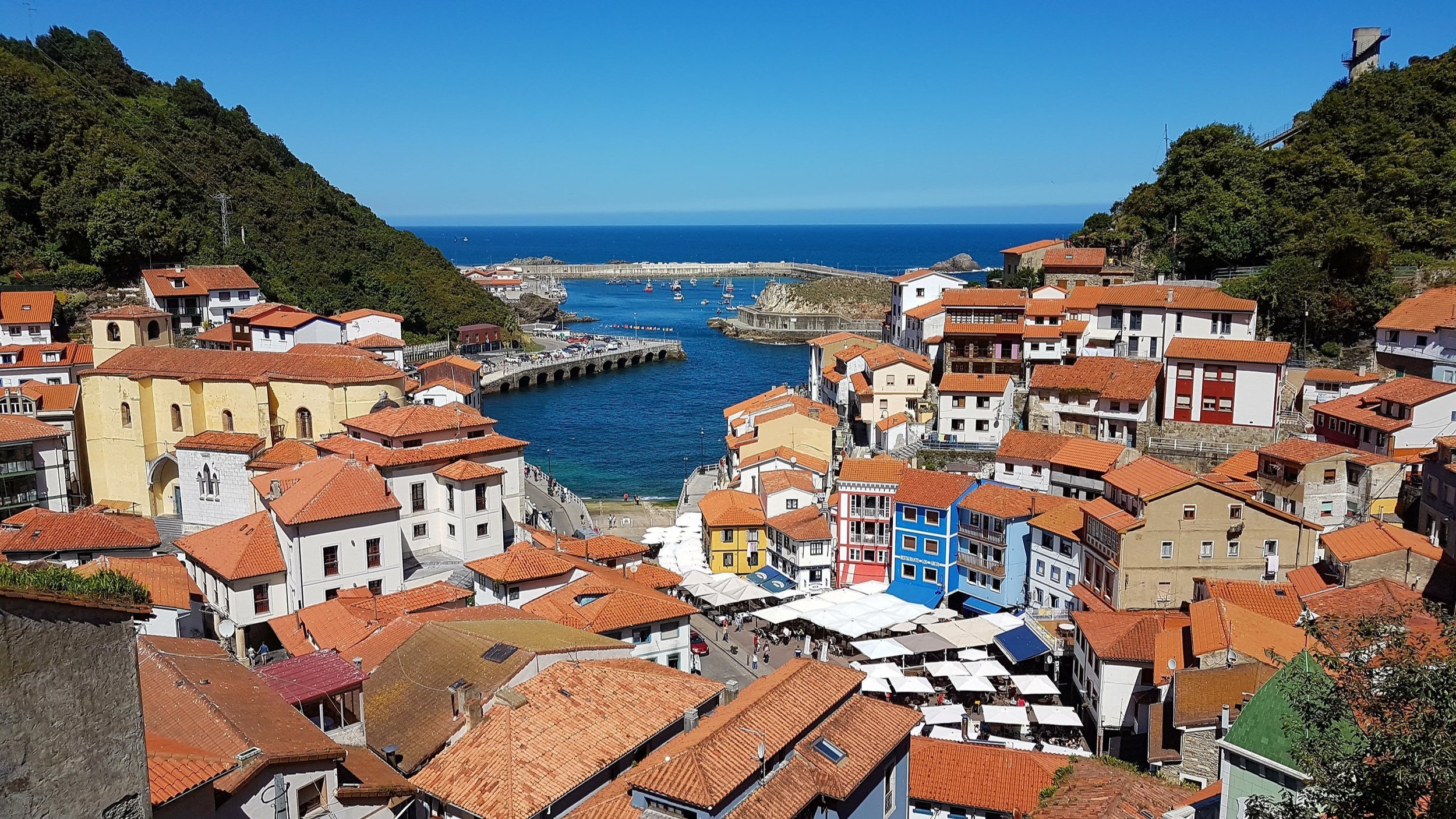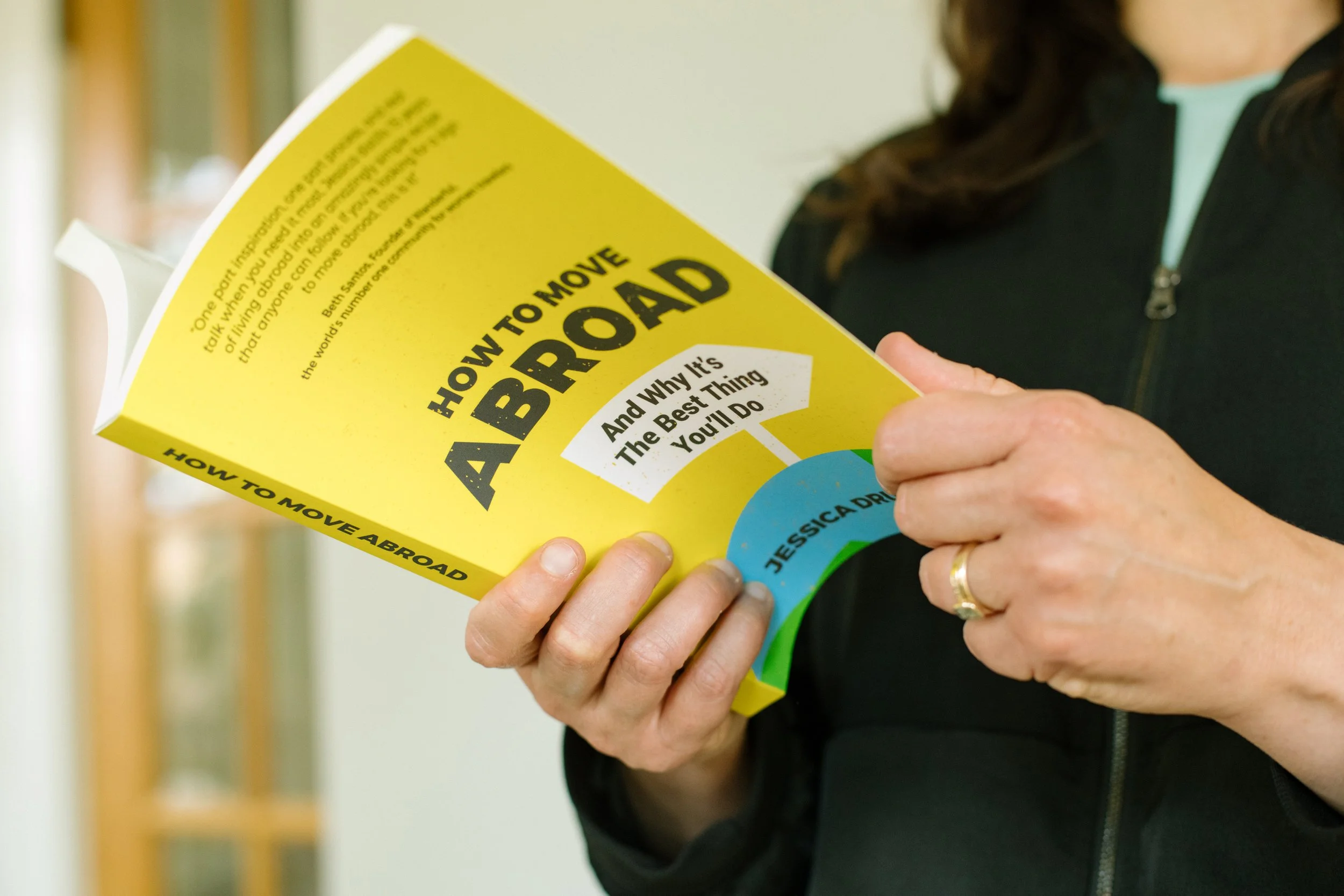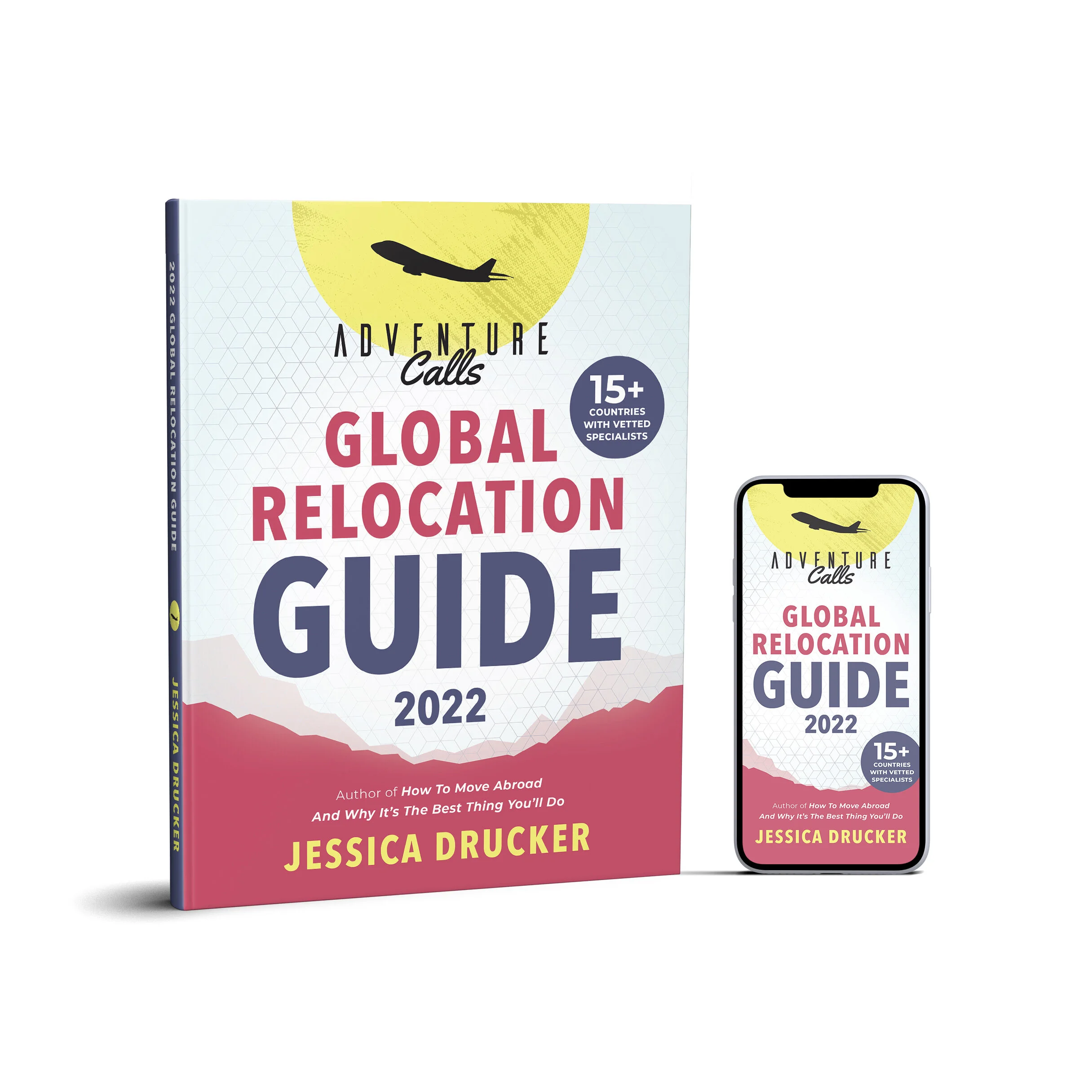This post originated as an interview with Jess Gaspari of Adler + Marlow travel agency and relocation provider in Spain during the Adventure Calls 2021 Global Relocation Conference.
Jess Gaspari is originally from Philly and has been loving and living in Spain since she moved there for the first time in 2007 as a study abroad student. Today she helps others discover their love of Spain at Adler & Marlow, the bespoke travel agency that curates carefully tailored, exclusive travel plans for all types of travelers, including longer-term expats. Relo, Adler + Marlow’s relocation services arm, combines the local expertise of Adler & Marlow with trusted legal partners to make your transition to the Spanish way of life easy, exciting, and like no other.
Why do Americans want to move to Spain in 2022?
Spain is one of the most popular countries in Europe for Americans to move to for a variety of reasons. First, many Americans have their study abroad experience in Spain, which connects them for life to the country. Americans also tend to speak Spanish as their second language, or at least feel comfortable hearing it compared to more ‘foreign’ sounding languages, so the familiarity factor is an incentive.
Lastly, Spain is an affordable European option with beautiful weather and friendly visa opportunities. Those last two, the weather and the visa opportunities really set Spain apart from most other countries in Europe.
The pandemic changed the world of work, which allows even more people to work from wherever they want - whether that’s through remote work or finally taking the leap to live abroad. Spain is adjusting their visa options to reflect this new world. Read on for the new visa that Spain is making available.
Top tips for moving to Spain in 2022
During our interview at the Adventure Calls 2021 Global Relocation Conference, Jess provided some key pieces of advice on moving to Spain.
Tip 1: Opt for the easiest visa first
How you enter the country - the visa you enter on - is not usually the one you stay on. You need to find a visa that will get you over and stable, and then go from there, advises Jess Gaspari of Adler + Marlow. Most visas in Spain are good for a year, and then once you pass the year mark, it is easier to renew that visa to get to the three year mark and it is at that point that you can start to explore converting that time into a residency visa.
Tip 2: Don’t let lack of language hold you back
Is it easier to move to Spain if you speak Spanish? Yes, of course. It is easier to understand paperwork, procedures, to meet people, and to feel confident in your decisions. However, there is no language requirement attached to many visa applications, meaning you don’t HAVE to speak Spanish on arrival and you can learn it after you get there. So just get to Spain first, if that’s your dream, and learn Spanish while immersed in daily life.
In Barcelona and Madrid and in most of the bigger cities, you can definitely get by without speaking Spanish. Things have changed a lot in the last ten years, kids are learning English earlier and earlier in schools, the increase in tourism in Spain forces people to get better at English.
The difficulties come when you are needing to fill out official paperwork in official offices. Make sure you bring a fluent Spanish speaker any time you are signing something in any official capacity.
Tip 3: Salaries in Spain are relatively low.
If you move to Spain and look for employment at a Spanish company, no matter what the industry, salaries tend to be generally low. While this can be a disadvantage for those earning an income in Spain, that also means that the cost of living in generally low, and those who can earn an income outside of Spain while living within the country can afford a very comfortable lifestyle.
How is it possible to work in one country and live in Spain?
Actually, that’s is, in a way, what Spain wants you to do right now.
Getting a visa to live in Spain in 2022
Let’s go over three common visas that Americans can get in 2022 that are exciting for digital nomads and entrepreneurs. Stay tuned at the end for one more KEY tip and one visa that is slowly being phased out as an option, as well.
Visa 1: The Non-Lucrative Visa
As it sounds, this visa is open to foreign nationals who will not be earning an income while living in Spain. In a way, it is like an extended, legal tourist visa. While you can not earn income in Spain, you can live in Spain as a resident, your children can go to local public school, you qualify for the healthcare system, and more. This visa is great for anyone looking to take a gap year, a sabbatical, or has retirement or other income in their home country that can keep them afloat while living in Spain.
For reference, one year in Spain might cost around EUR 26,000 for one person. For a couple, that would likely be more like EUR 40,000.
See more information about the Non-Lucrative Visa here.
Read about the experience in acquiring the non-lucrative visa from one of travel’s most intrepid adventurers, Wandering Earl.
Visa 2: The Self-Employment Visa
This visa is for those who already have an established business or freelance career with thriving international clients. Although there is a lot of paperwork involved in making this happen, you essentially have a visa to run your business from Spain, as long as 80% of your clients are not Spanish companies.
Find out more about the Spanish self-employment visa here.
Visa 3 (coming soon): The Digital Nomad Visa
Spain is developing a digital nomad visa for foreign workers who work for non-Spanish companies, while living in Spain. This is a great option for people who might lean toward the non-lucrative but want to work. This income will be taxed in Spain, but at only a rate of 15% income tax. This is less than you might be paying at home, and less than you pay on other visas in Spain. You can also claim your paid income tax against the foreign tax credit back in the US and not pay any extra taxes in the US.
Read more about the new Digital Nomad Visa here.
Visa 4 (being phased out): the Spanish Golden Visa
The European Union has been unhappy with the Spanish-led Golden Visa option for awhile now, and this will be phased out in 2022 in Spain and Portugal. Up until now, you could invest EUR 500,000 into a real property and be granted residency in Spain, and therefore the EU. But this residency for purchase might make the country money in the short term, but it is being discouraged for the long term.
Read more about the reduced number of Spanish Golden Visas here.
You have to apply for an official visa to stay in Spain
In many countries, you are able to stay for the length of your tourist visa, leave for 72 hours and return with a fresh new tourist visa. And in the past, you may have been able to float under the radar without an official visa in Spain, but today, there is no working under the table for cash, or even just floating through working online as you go. Everything is digital and much better regulated, so before you decide to move to Spain, you’ll need help with your relocation needs.
Apply for your Spanish visa in your home country
You will have to apply for your visas from your home country (or current country of residence if you are a legal expat in another country). If you are based in the US, that is the Consulate General in Washington or a local consulate.
Number 1 piece of advice for moving to Spain:
It is the best piece of advice that Jess Gaspari gave us because it helps future expats avoid one of the most frustrating aspects of moving abroad: The Catch 22.
No country has streamlined the process of moving abroad. This means that there are often times where you have to get one document in order to get another, but you can’t get the first without a second. And somehow, you’re racking your brain to figure out how to get one without having the other, which you need to get the first one. It can be mind boggling.
TOP TIP: Get your Spanish social security card from the Consulate in your home country.
When moving to Spain, you need a social security number for identification and tax purposes. It is a bit of an issue trying to get an appointment in Spain, because offices tend to be overwhelmed. You can get an appointment at the Spanish consulate in your home country and apply for a temporary number. That is highly, highly recommended if at all possible. It will save you a lot of time once you are there. You eventually apply for a permanent number, but having the temporary number can help you because you need it to get an apartment, but you can’t get an apartment without the number. Catch 22. The same can often go for work - you have to prove employment to get a number, but you need a number to get a job. That’s why, if you can set this up in advance, you will make your life much easier on arrival.
Catch 22s and loopholes are really tough with immigration processes worldwide, and so this is a great way to avoid a common one in Spain.
Read more about Spanish social security numbers here.
Interested in moving to Spain? Reach out to Adler + Marlow on their website / LinkedIn / @adlermarlowtravel on Instagram.
Get help turning your dream into your reality in 2022.
Want help finding a relocation consultant to move abroad?
Pick up a copy of the 2022 Global Relocation Guide.
Get the book
How To Move Abroad And Why It’s The Best Thing You’ll Do
















